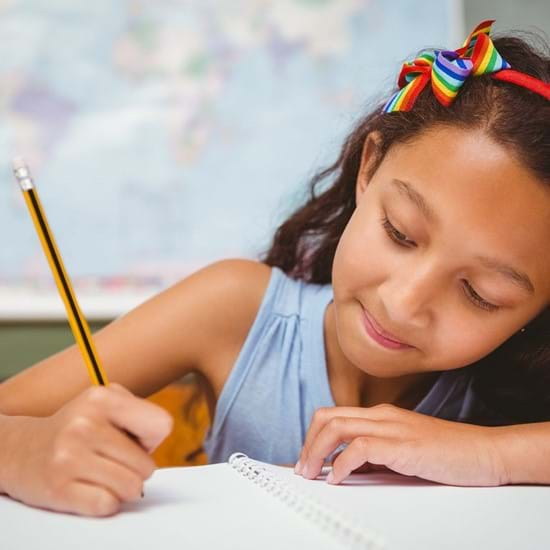
Expand Your Child’s Literary Horizons!

Written by: Julie Provencher
“You have to eat your spinach - Popeye's favourite food!” “Don't be like Grouchy Smurf!” “You are as sly as a fox!” It’s not uncommon to hear a parent use different stories to illustrate what real everyday life is all about. These serve as reference guidelines for the child. Every family has its own literary delights, classics, stories passed down from generation to generation, magical stories, joyful stories, horror stories or simple heartwarming stories. As the years go by, your child expands his general knowledge through the constant addition of cultural references. Somewhat like a quilt, he establishes links between reading materials and enrich the learning experience with stories, adventures and values. As your child explores reading, you are called upon to guide him through the whole process of making sense of the world that surrounds him.
But how can one be Helpful to this Growth?
First off, I came up with a number of tricks to expand my children’s literary horizons. I did so fully aware of the fact that such hints would result in many tangible benefits for them. How many times are they asked to list their favourite author, to choose a top pick story or to make links between two books? Here’s how you can help your child expand his literary culture.
Read Tales
As I enjoy rediscovering classic folk tales and share them with my children, I make it a point to explain that these stories have existed for a very long time. Likewise, one thing you can do is list a number of timeless fairy tales and ask your child if he’s aware of either of the featured titles; make this an opportunity to have fun challenging your knowledge of such classics!
|
Are you familiar with either of these tales? |
|
|
□ Aladdin and The Wonderful Lamp ; □ Ali Baba and the Forty Thieves; □ Alice's Adventures in Wonderland; □ Snow White; □ Goldilocks and the Three Bears; □ Hansel and Gretel; □ Puss in Boots; □ The Three Little Pigs; |
□ Little Red Riding Hood; □ Tom Thumb; □ The Princess and the Pea; □ The Adventures of Pinocchio; □ The Sleeping Beauty; □ The Beauty and the Beast; and many others. |
In addition to familiarizing themselves with these tales, your children will realize that there is truth behind those stories; not because the world of fairies and dragons actually exists, but because we use these folk stories to teach them how to challenge their fears, make the difference between the good and the evil, and distinguish basic universal values such as friendship, mutual help, loyalty, honesty, courage and so on and so forth!
Furthermore, your child cannot fail to appreciate the different adaptations and “most-recent versions” of classic children's stories. Reading aloud to a child gives him the means to understand the humour in the different adaptations of these tales ― whether film or book.
Choose Books From Different Authors
How do you select your readings? Do you have a favourite author? Just like you, your child is on the hunt for a brilliant book! Accordingly, knowing the authors out there will prove helpful with their search. Hence, I always take the time to identify the author before reading aloud to my children. After all, he worked so hard to come up with such a beautifully-crafted gem of book; he deserves to be mentioned! I also enjoy exposing my children to several authors so that they can―unknowingly― find their personal favourites. When I take my children to the library, I sometime ask them to choose three books by the same author. I do this because I find that the creator’s world is best explored by reading several of his books. In contrast, I sometime encourage my children to check out books written by authors we don’t know.
It is truly fascinating to see that, even at a very young age, children develop their curiosity: “Mommy, who’s the author?” “Look, a new book by so-and-so!”
Another thing we do in the spirit of literary growth is to attend the book fair. I remember this one time, as 7-year-old boy holding a book in his hand, my son said me: “My book was written by a real person; that’s so cool!”
Read biographies
Stimulating the growth of your child’s literary culture also means he’s going to acquire a set of references for himself. Through numerous real-life stories, the child learns about the great figures and main events that have marked our history. I particularly enjoy the discussions and interpretations prompted by the books my children read; I become a witness as they develop their own references to understand the world around them. Biographies allow us to make a pause in time and explain the “old days.” In this process, we discuss, clarify and reflect for a better understanding of today’s world.
An older child can easily trigger such reflections and talks by choosing a biographical book as reading material to be the topic of conversation with his parents.
Finally, similar to a house foundation, a parent can help build the foundation of his child’s literary heritage ― and this can be done one book at a time!
Here are some helpful links:
http://naitreetgrandir.com/fr/etape/5-8-ans/fiches-activites/contes/ (French only)
http://www.iletaitunehistoire.com/genres/contes-legendes (French only)
http://www.livresouverts.qc.ca/ (French only)
http://www.communication-jeunesse.qc.ca/ (French only)
http://sophielit.ca/ (French only)
http://www.pouvoirdelire.com/ (French only)

Julie Provencher -- Mother/Teacher/Lecturer
Follow me on Twitter: @Pouvoirdelire
Website: www.pouvoirdelire.com


